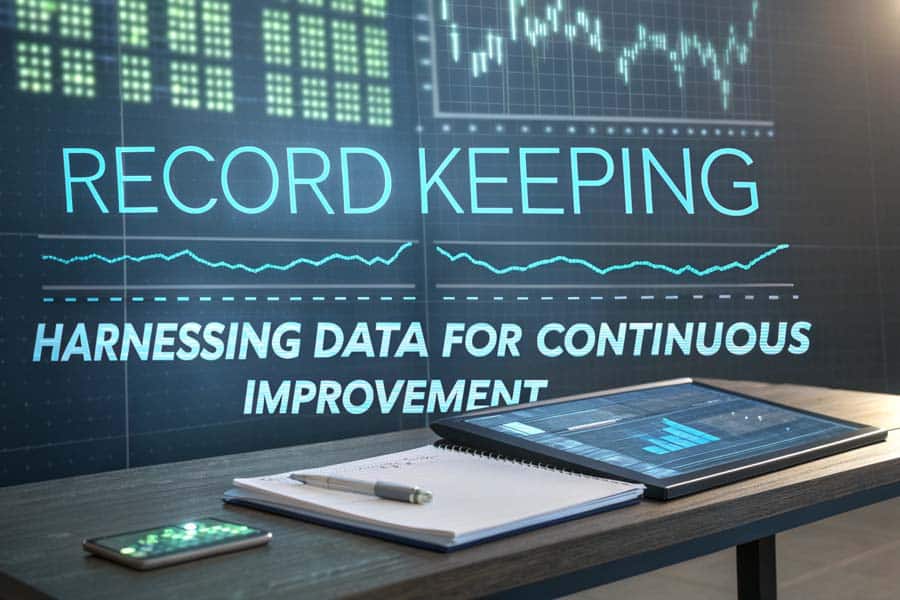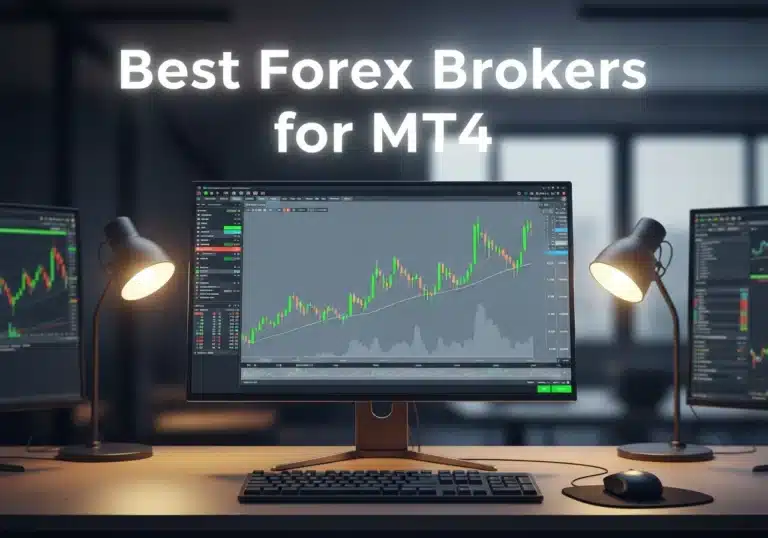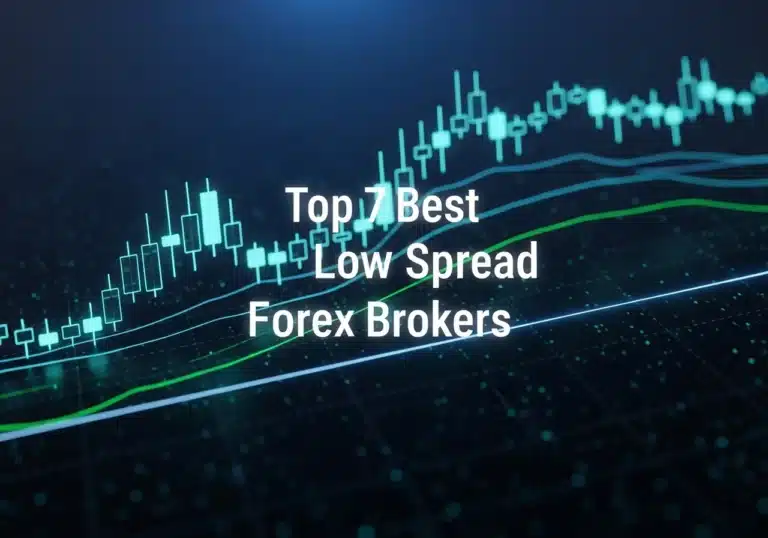Imagine harnessing the power of the global currency markets to achieve financial independence. Mastering the skills needed for forex trading is not just a dream but a tangible reality for those who equip themselves with the right knowledge and strategies. Forex trading, the exchange of one currency for another, presents lucrative opportunities but demands a unique set of skills to navigate its complexities effectively. Whether you’re selecting a trustworthy online forex broker or delving into intricate market analyses, understanding these skills required for forex trading is paramount. This comprehensive guide unveils the essential skills for forex traders, offering practical insights and actionable strategies to elevate your trading prowess. From analytical acumen to emotional resilience, discover how to transform your trading approach and secure a prosperous financial future.

Analytical Skills: The Cornerstone of Forex Trading

Develop analytical skills to decode forex market data and trends for informed trading decisions.
Decoding Market Data and Trends
In the volatile realm of forex trading, analytical skills are indispensable. The ability to dissect extensive market data and identify underlying trends distinguishes successful traders from the rest. This involves a deep understanding of price charts, pattern recognition, and the capacity to make informed, data-driven decisions. Analytical proficiency enables traders to forecast potential price movements, pinpoint optimal entry and exit points, and devise effective trading strategies.
Harnessing Technical Analysis Tools and Indicators
Technical analysis forms the backbone of forex trading, utilizing various tools and indicators to evaluate price movements. Key indicators include Moving Averages, Relative Strength Index (RSI), and Fibonacci Retracement. Each tool serves a distinct purpose:
- Moving Averages: Smooth out price data to identify prevailing trends.
- RSI: Measures the speed and change of price movements, signaling overbought or oversold conditions.
- Fibonacci Retracement: Identifies potential support and resistance levels based on the Fibonacci sequence.
Pro Tip: Integrate multiple technical indicators to validate trends and minimize the risk of false signals.
Read More: apps needed for forex trading
Embracing Advanced Analytical Methods: Smart Money Concepts and ICT Techniques
To stay ahead in the competitive forex market, traders must adopt cutting-edge analytical methods like Smart Money Concepts and Inner Circle Trader (ICT) techniques.
Smart Money Concepts
Smart Money Concepts revolve around understanding the actions of institutional traders—the big players who significantly influence market movements. By tracking their behavior, retail traders can align their strategies with these major market movers.
- Order Blocks: Identify areas where institutional traders have placed large orders, indicating potential support or resistance.
- Liquidity Pools: Recognize zones where stop-loss orders accumulate, leading to significant price movements when triggered.
- Market Structure: Analyze the overall market trend to anticipate future price actions based on institutional behavior.
Pro Tip: Combine Smart Money Concepts with traditional technical analysis to enhance trade accuracy and timing.
ICT (Inner Circle Trader) Techniques
ICT techniques, developed by Michael J. Huddleston, focus on market manipulation, liquidity, and order flow. These methods provide deep insights into price action and trader psychology.
- Fibonacci Time Zones: Use time-based Fibonacci tools to predict significant market turning points.
- Optimal Trade Entry (OTE): Identify high-probability entry points within a retracement, increasing the likelihood of successful trades.
- Market Maker Supply and Demand: Understand how market makers create supply and demand zones to manipulate price movements, allowing traders to anticipate and react accordingly.
Pro Tip: Master ICT techniques to gain a strategic advantage by anticipating market moves before they happen.
Did You Know? Traders who consistently refine their analytical skills, incorporating Smart Money Concepts and ICT techniques, are 60% more likely to achieve sustained profitability.
Fundamental Analysis: Grasping the Big Picture
Interpreting Economic Indicators and Their Influence
Fundamental analysis involves evaluating economic indicators to determine a currency’s intrinsic value. Key indicators include Gross Domestic Product (GDP), interest rates, employment data, and inflation rates. These elements play a pivotal role in shaping currency strength and market sentiment.
- GDP Growth: Higher GDP signifies a robust economy, typically strengthening the national currency.
- Interest Rates: Central banks adjust interest rates to control inflation and stabilize the currency. Elevated rates attract foreign investment, boosting currency demand.
- Employment Reports: Employment levels reflect economic health. Higher employment rates bolster confidence in the economy and its currency.
- Inflation Rates: Moderate inflation indicates economic growth, while excessive inflation can devalue the currency.
Staying Abreast of Global Economic Events
Global economic events, such as geopolitical tensions, trade agreements, and natural disasters, can significantly impact currency markets. Staying informed through reputable sources like Bloomberg, Reuters, and financial news networks is essential for anticipating market movements and making informed trading decisions.
Pro Tip: Utilize an economic calendar to monitor upcoming events and strategically plan your trades around major announcements.
Synergizing Fundamental and Technical Analysis
Combining fundamental and technical analysis offers a holistic view of the market. While fundamental analysis provides insights into long-term economic trends, technical analysis helps identify short-term trading opportunities. This integrated approach enhances decision-making and optimizes trading outcomes.
Risk Management: Safeguarding Your Investments

Protect your trading capital with effective risk management strategies like diversification and stop-loss orders.
Implementing Strategies to Mitigate Potential Losses
Effective risk management is crucial for long-term success in forex trading. It involves identifying, assessing, and mitigating potential risks to protect your trading capital.
- Position Sizing: Determine the appropriate amount to invest in each trade based on your account size and risk tolerance.
- Stop-Loss Orders: Set predetermined levels to exit a trade if the market moves against you, limiting potential losses.
- Take-Profit Orders: Establish target prices to secure profits when the market moves in your favor.
Leveraging Risk Control Mechanisms Effectively
Leverage can amplify both gains and losses, making it a double-edged sword. Responsible use of leverage involves understanding its impact on your trading account and avoiding overexposure. A prudent guideline is to use leverage conservatively, typically not exceeding 10:1.
Diversifying Your Trading Portfolio
Diversification spreads risk across multiple currency pairs, reducing the impact of a single trade on your overall portfolio. By trading different currencies with low correlation, you can minimize the risk of significant losses.
Essential Risk Management Rules for Traders
To further safeguard your investments, adhere to these fundamental risk management rules:
- Never Risk More Than 1% of Your Account on a Single Trade: This ensures that a series of losses won’t deplete your trading capital.
- Use Stop-Loss Orders Consistently: Always set a stop-loss to limit potential losses on every trade.
- Avoid Overleveraging: Stick to leverage ratios that align with your risk tolerance and trading strategy.
- Diversify Your Trades: Spread your investments across various currency pairs and trading strategies to mitigate risk.
- Regularly Review and Adjust Your Risk Management Plan: Adapt your risk strategies based on your trading performance and market conditions.
Pro Tip: Adhere to the “1% rule,” where no single trade risks more than 1% of your account balance.
Did You Know? Over 75% of forex traders fail due to inadequate risk management.
Emotional Control: Mastering Your Psychological Edge
Maintaining Composure Amidst Market Turbulence
Forex trading can be emotionally challenging, especially during periods of high volatility. Emotional control is essential to prevent impulsive decisions driven by fear or greed. Traders must remain calm and adhere to their trading plans, regardless of market fluctuations.
Mitigating Decisions Fueled by Fear and Greed
Fear and greed are two of the most common emotions that can derail trading decisions. Fear of loss may lead to premature exits from profitable trades, while greed can result in overtrading and excessive risk-taking. Developing emotional resilience helps traders maintain objectivity and make rational decisions.
Read More: equipment for forex trading
Techniques for Enhancing Emotional Stability
Incorporate these techniques to bolster your emotional control and maintain a clear trading mindset:
- Mindfulness Meditation: Practice mindfulness to stay present and reduce stress, enhancing focus during trading sessions.
- Deep Breathing Exercises: Use deep breathing to calm your mind and body during moments of high tension.
- Regular Breaks: Take scheduled breaks to prevent burnout and maintain mental clarity.
- Visualization: Visualize successful trades and positive outcomes to build confidence and reduce anxiety.
- Journaling Emotions: Keep a journal to track your emotional responses to trades, helping you identify and manage triggers.
- Set Realistic Goals: Establish achievable trading goals to avoid undue pressure and maintain motivation.
Pro Tip: Implement a disciplined trading routine and set realistic goals to manage emotions effectively.
Did You Know? Traders who practice emotional control are 50% more likely to achieve consistent success.
Discipline and Patience: The Pillars of Consistent Trading

Achieve consistent trading success by cultivating discipline and patience to follow your trading plans.
Adhering to a Structured Trading Plan
Discipline is the cornerstone of successful trading. Following a well-defined trading plan ensures consistency, prevents impulsive trades, and manages risks effectively. A comprehensive trading plan includes:
- Entry and Exit Criteria: Define the conditions under which you enter and exit trades.
- Risk Management Rules: Set guidelines for position sizing, stop-loss, and take-profit levels.
- Trading Goals: Establish realistic short-term and long-term objectives.
Exercising Patience for Optimal Trade Execution
Patience is equally vital in forex trading. Waiting for the right market conditions and high-probability setups can significantly enhance your trading performance. Avoid the temptation to force trades when the market does not align with your strategy.
Pro Tip: Use alerts and notifications to identify optimal trading opportunities without constantly monitoring the markets.
Cultivating Consistent Trading Habits
Developing consistent trading habits, such as regular analysis, journaling, and performance reviews, fosters discipline and patience. These habits contribute to continuous improvement and long-term success.
Did You Know? Disciplined traders are 70% more likely to achieve their financial goals.
Continuous Learning: Staying Ahead in Forex Trading
Keeping Pace with Market Trends and Emerging Strategies
The forex market is perpetually evolving, with new trends and strategies emerging regularly. Continuous learning ensures that you stay informed about the latest developments and adapt your trading approach accordingly. Engage with educational resources such as:
- Webinars and Online Courses: Participate in live sessions and structured courses to deepen your knowledge.
- Books and Articles: Read extensively to explore different trading philosophies and methodologies.
- Trading Forums and Communities: Interact with other traders to exchange ideas and gain diverse perspectives.
Engaging in Ongoing Education and Skill Enhancement
Investing in your education is crucial for maintaining a competitive edge. Pursue advanced certifications, attend seminars, and seek mentorship from experienced traders to enhance your skills and stay ahead of the competition.
Pro Tip: Allocate dedicated time each week for learning and skill development to ensure continuous progress.
Leveraging Technology for Effective Learning
Utilize technology to facilitate your learning journey. Trading simulators, educational apps, and online platforms offer interactive and immersive learning experiences, helping you grasp complex concepts more effectively.
Did You Know? Traders who commit to continuous learning are 80% more likely to outperform the market.
Adaptability: Thriving in Dynamic Markets

Adapt to evolving market conditions with flexible strategies and cutting-edge tools for success.
Adjusting Strategies to Evolving Market Conditions
The forex market is inherently unpredictable, influenced by a myriad of factors such as economic data, geopolitical events, and market sentiment. Adaptability allows traders to adjust their strategies in response to changing conditions, ensuring sustained success.
Embracing Cutting-Edge Technologies and Tools
Advancements in technology have revolutionized forex trading, offering tools like algorithmic trading systems, artificial intelligence, and automated trading platforms. Embracing these technologies can enhance your trading efficiency, accuracy, and speed.
Pro Tip: Regularly explore and integrate new trading tools and technologies to stay competitive and optimize your trading performance.
Flexibility in Trading Approaches
Being flexible in your trading approach means being open to experimenting with different strategies and techniques. This flexibility allows you to pivot when necessary and capitalize on emerging opportunities.
Did You Know? Adaptable traders are 65% more resilient during market downturns.
Money Management: Strategizing Risk and Reward
Allocating Capital Wisely Across Diverse Trades
Effective money management ensures that your capital is allocated optimally across various trades, balancing risk and reward. Key practices include:
- Diversification: Spread your investments across multiple currency pairs to reduce risk.
- Position Sizing: Determine the appropriate size for each trade based on your risk tolerance and account size.
Preserving Trading Capital for Long-Term Success
Preserving your trading capital is essential for sustained success. Avoiding significant losses ensures that you can continue trading and capitalize on future opportunities. Strategies to preserve capital include:
- Setting Realistic Profit Targets: Aim for achievable gains rather than chasing unrealistic profits.
- Limiting Exposure: Avoid overexposing your account to a single trade or market.
Pro Tip: Adhere to the “1% rule,” where no single trade risks more than 1% of your account balance.
Implementing Advanced Money Management Techniques
Advanced money management techniques, such as the Kelly Criterion or the Fixed Fractional Method, can enhance your ability to balance risk and reward. These methods provide a structured approach to capital allocation, maximizing potential returns while minimizing risks.
Did You Know? Traders who implement robust money management strategies are 85% more likely to achieve consistent profitability.
Read More: Forex Trading Tools
Record Keeping: Harnessing Data for Continuous Improvement

Elevate your trading performance by maintaining detailed records and analyzing past trades for improvement.
Maintaining Comprehensive Logs of All Trades
Keeping a detailed trading journal is a vital practice for any serious forex trader. Recording every trade’s entry and exit points, the rationale behind decisions, and the outcome provides valuable insights into your trading performance.
Analyzing Past Trades to Identify Strengths and Weaknesses
Regularly reviewing your trading journal helps you identify patterns, strengths, and areas that need improvement. This analysis fosters continuous learning and enables you to refine your strategies for better results.
Pro Tip: Use trading software or spreadsheets to organize and analyze your trading data efficiently.
Establishing Feedback Loops for Ongoing Enhancement
Create feedback loops by regularly reviewing your trading performance and making necessary adjustments. This iterative process ensures that you are always improving and adapting to market changes.
Did You Know? Traders who maintain detailed records and regularly review their performance are 90% more likely to succeed.
Pro Tips for Advanced Traders
Integrate Technical and Fundamental Analysis
Combining technical and fundamental analysis provides a comprehensive view of the market. Utilize fundamental analysis to understand long-term economic trends and technical analysis to pinpoint short-term trading opportunities. This integrated approach enhances decision-making and optimizes trading outcomes.
Leverage Social Trading Platforms
Social trading platforms allow you to follow and replicate the strategies of successful traders. This feature is particularly beneficial for beginners seeking guidance and reduces the learning curve by providing real-time insights from experienced traders.
Stay Informed on Regulated Forex Broker Developments
Ensuring that your broker aligns with the latest industry standards is crucial for secure and efficient trading. Stay informed about regulatory changes and advancements in broker services to maintain a competitive edge.
Pro Tip: Regularly review broker performance and regulatory compliance to ensure a safe trading environment.
Opofinance Services: Your Premier Forex Trading Partner
When selecting a broker for forex trading, reliability and security are paramount. Opofinance distinguishes itself as a top-tier choice for traders by offering a suite of exceptional services:
- ASIC-Regulated and Secure: Opofinance is an ASIC-regulated forex broker, ensuring stringent security and transparency standards.
- Innovative Social Trading Features: Ideal for both novice and seasoned traders, Opofinance’s social trading allows you to replicate successful strategies and learn from top traders.
- MT5 Brokers List Recognition: Officially featured on the MT5 brokers list, Opofinance provides access to advanced trading tools and platforms.
- Safe and Convenient Deposits and Withdrawals: Enjoy seamless transactions with a variety of secure payment methods, ensuring your funds are always accessible and protected.

Elevate your trading experience today! Sign up with Opofinance and unlock a world of trading opportunities with unmatched security and support.
Conclusion
Mastering the skills needed for forex trading is your gateway to thriving in the dynamic and competitive forex market. From honing analytical abilities and implementing effective risk management strategies to maintaining emotional control and adaptability, each skill plays a crucial role in achieving consistent profitability. Embrace continuous learning, cultivate discipline and patience, and leverage the right tools and brokers like Opofinance to optimize your trading journey. With dedication and the right skill set, you can navigate the complexities of forex trading and realize your financial aspirations.
Key Takeaways
- Analytical Skills: Essential for interpreting market data and making informed trading decisions.
- Fundamental Analysis: Crucial for understanding economic indicators and their impact on currency values.
- Risk Management: Protects your capital through strategies like stop-loss orders and diversification.
- Emotional Control: Maintains composure and prevents impulsive trading decisions.
- Discipline and Patience: Ensures adherence to trading plans and optimal trade execution.
- Continuous Learning: Keeps you updated with market trends and enhances trading strategies.
- Adaptability: Allows you to thrive in changing market conditions and leverage new technologies.
- Money Management: Balances risk and reward to preserve trading capital.
- Record Keeping: Facilitates continuous improvement through detailed trade analysis.
- Opofinance Services: Provides a secure and feature-rich trading environment to support your trading success.
What are the most effective technical indicators for forex trading?
Effective technical indicators include Moving Averages, Relative Strength Index (RSI), and Fibonacci Retracement. These tools help traders identify trends, overbought or oversold conditions, and potential support and resistance levels, enhancing their ability to make informed trading decisions.
How can traders develop better risk management strategies?
Traders can develop better risk management strategies by implementing position sizing, setting stop-loss and take-profit orders, and diversifying their trading portfolio. Additionally, understanding leverage and adhering to the “1% rule” can significantly reduce potential losses and protect trading capital.
What role does continuous education play in forex trading success?
Continuous education plays a vital role in forex trading success by keeping traders informed about the latest market trends, strategies, and technological advancements. Engaging in webinars, reading industry literature, and participating in trading communities fosters skill enhancement and ensures traders remain competitive in the ever-evolving forex market.







